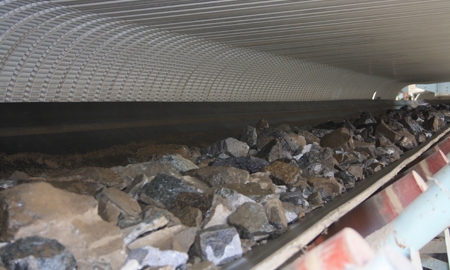
Nickel is the fifth most common element found on Earth – only iron, oxygen, silicon and magnesium are more abundant – and Botswana is one of Africa’s major producers of the mineral. It is the southern African country’s third-largest export commodity, after diamonds and copper, as relentless demand from industrializing nations such as China and India adds impetus to maximizing current reserves and finding new deposits.
One of the nation’s trailblazers in the industry is the Tati Nickel Mining Company (TNMC), which offers a wide range of nickel, copper and cobalt metal mining services. Russian base-metals giant Norilsk Nickel controls 85% of the company, with the remaining 15% in the hands of the Botswana government.
“Tati Nickel was one of the first companies in Botswana that started to deal with nickel deposits in the country,” says managing director Bogdan Kuhzel. “Before we and other players came into the picture, diamonds were dominating the economy of Botswana.”
TNMC operates the Botswana’s Phoenix open-pit and Selkirk underground mines close to Francistown. At the Phoenix site, estimates suggest the mine has another five years of activity. However, the managing director says that Norilsk Nickel and the authorities have taken the steps needed to ensure that the life of the mine can be extended. “Licenses have been obtained for geological exploration in adjacent properties to our Phoenix deposit currently under development,” he says. “According to geologists these targets have good potential for geological exploration and the existing Phoenix iron ore body stretches beyond the current mining license. We are very hopeful. Based on the results of the feasibility study, decisions are pending that will ensure that the life of the mine for Tati Nickel will be extended further. This will require capital investment and a plan which is attractive for investors.”
From a foreign investors point of view, Botswana represents a highly attractive destination. “What we have seen here is a loyal attitude on the part of the government towards businesses because they are interested in drawing in and retaining investors to the country. This is what should normally happen because any direct investment will result in the generation of new jobs,” says Mr. Kuhzel.
Outside its Russian and European properties, TNMC is among Norilsk's most profitable businesses and it is one of the only companies in the world that is able to economically treat ores of a very low grade. “Nobody else on the globe can transform these ores into concentrate,” says Mr. Kuhzel. “We are treating the lowest grade nickel ores in the world. Our process here is the only one which is physically doing this. If you look at the grades of the ores we are currently mining, then most companies would shut down. We are using a process designed with the support and cooperation of head office, as well as other research institutions in South Africa. This process allows the company to still be viable.
“What we also see today is that the combined efforts of Tati Nickel employees have allowed us to address a number of issues, such as trying to get good feed and stockpiling the material in order to treat it, which had to be tackled in order to maximize the raw material coming out of the mine.”
0 COMMENTS